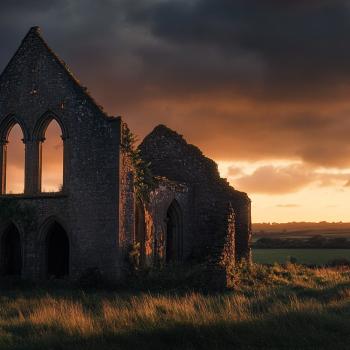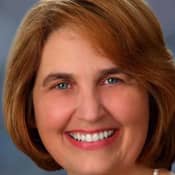Mention the word "heiress" today and a host of pop culture images may come to mind. (Some may not be too flattering.) Conjure up "the rich" and see what movie plays in your head. Now envision your own bank account. What does it mean to you?
How many of us squirmed a bit when we heard last Sunday's Gospel from Matthewas Jesus offered this challenge to his disciples, and to us?
No one can serve two masters. He will either hate one and love the other, or be devoted to one and despise the other. You cannot serve God and mammon (Mt. 6:24).
The economics of the American way of life are built on capitalism. The Christian way of life is built on the Gospel of Jesus Christ. For an American Catholic, whether wealthy, poor, or somewhere in-between, this calls for some serious prayer and discernment. How do we integrate existing in a society where we must eat and work and provide, yet still strive to live according to the tenets of our faith?
On many days, it takes grace. And the fortitude of a saint.
Enter an American heiress, borne to wealth and privilege, and recently declared a saint.
To say she came from money would have been an understatement. But what is more remarkable is how her parents raised her. Contrary to being possessed by their riches, the 19th-century Drexel family from Philadelphia maintained that wealth was simply loaned to them to be shared for the good of others.
Katharine Drexel, born in 1858, grew up one of three heiresses to a family fortune. Her grandfather, Francis, and his sons, founded and ran the Drexel Bank. Her successful uncle, Anthony Drexel, pioneered banking networks and the early days of Wall Street. He also opened Drexel University with the goal of helping people improve their station in life by offering low-cost tuition.
Katharine's affluent heritage afforded her a private education and extensive travels throughout the United States and Europe. It was during those very travels in the U. S. that she witnessed the nation's poorest and most-marginalized citizens of her day: disadvantaged Native Americans and African Americans.
Upon the death of her parents, Katharine inherited a vast fortune. Meanwhile, her strong Catholic faith was leading her toward a religious vocation. She longed to dedicate her life to prayer fulltime as a contemplative nun, and to donate her share of the inheritance to the family's philanthropic charities. But first, in 1885, she opened a school for Native Americans in Santa Fe, New Mexico. This would be the first of many similar endeavors, but Katharine's path was not yet clear.
Shortly thereafter, Katharine and her sisters went to Rome. During a private audience with Pope Leo XIII, Katharine knelt at his feet pleading that a missionary priest be sent to tend to her beloved Native Americans of the United States. The pope's response worked wonders in Katharine's soul: "Why not, my child, yourself become a missionary?"
This challenge brought focus to Katharine's resolve; she was already contemplating a religious life and giving away her fortune to support the missions. Soon her life would take a new turn that would involve both. She returned to Philadelphia and undertook her religious formation with the Sisters of Mercy.
A few years later, Katharine and a few companions founded the Sisters of the Blessed Sacrament for Indians and Colored People. The title of her community summed up the two driving forces in her life: devotion to the Blessed Sacrament and her love for the most deprived people in her country as the 20th century dawned.
And the rest, as they say, is history . . .
Later known as Mother Katharine, the congregation she founded was a tour de force of spiritual action, opening over sixty schools during her tenure. Using a combination of great prayer and generosity—and no doubt, the gift of her family's business acumen—she opened a network of schools around the country that some say were modeled after her uncle's banking networks.
The most famous school Katharine founded was Xavier University in New Orleans. Opened in 1915, it was the first Catholic institution for African Americans in the United States. (The second university founded by a Drexel, today Xavier boasts over 20,000 alumni.)
Twenty years later, in 1935, Mother Drexel suffered and survived a heart attack. Her frail health necessitated she retire as superior general of her order of sisters. She lived the rest of her days in a quiet life of prayer, devoting nearly twenty years to Eucharistic Adoration, thus fulfilling her original heart's desire. She died at age 96, on March 3, 1955.
The Church recognized Katharine Drexel as one of the saints of the new millennium when John Paul II canonized her on October 1, 2000.
Smart and savvy, Katharine Drexel was an American woman who led an exemplary Christian life. Her spiritual authenticity is a model for modern believers; she put her full resources, her mind and heart, her education and her fortune, at the service of others for the sake of the gospel.
And to this very day—her feast day being March 3rd—the positive ripples of St. Katharine Drexel's charity and wealth of soul move ever outward.
Every one to whom much is given, of him will much be required (Lk. 12:48).
3/3/2011 5:00:00 AM





